Play One's Ace Idiom: Meaning, Origin, Usage & Exercises
6 min read
Updated On
-
Copy link
The idiom ‘play one’s ace’ means to use one’s best resource/weapon. Learn its meaning, origin and how to use the idiom in this blog; explore examples & exercises designed to help you use it appropriately for an 8+ band score in the IELTS Speaking exam.
Table of Contents

Limited-Time Offer : Access a FREE 10-Day IELTS Study Plan!
In high-stakes communication, whether you are in a negotiation, interview, or academic argument, knowing when and how to use your strongest point can make all the difference. The idiom ‘play one’s ace’ captures this powerful strategy and is a brilliant addition to your IELTS Speaking and Writing vocabulary, particularly in topics involving competition, strategy, education, and leadership.
In this blog, we will explore the meaning, origin, real-life usage, and examples of this idiom that are specific to IELTS, followed by exercises to solidify your understanding and boost your confidence.
Play One's Ace Idiom: Meaning
To ‘play one’s ace’ means to use one’s best resource, strongest argument, or most powerful advantage, especially at a crucial or strategic moment. It implies that a person was holding back their best option and used it when it mattered most, like an ace in a card game.
This idiom reflects calculated timing, clever decision-making, and deliberate action, rather than impulsive or emotional behavior. As a result, it can be used in IELTS Writing to answer effectively.
Origin of Play One's Ace Idiom
The expression, play one’s ace, originates from card games like poker or bridge, where an ace is typically the most powerful card. A player may hold their ace until the most strategic moment, giving them an advantage over others.
By the mid-20th century, this phrase evolved beyond card games and became part of everyday and professional English, especially in contexts involving tactics or persuasion.
Seeking expert guidance on vocabulary building for IELTS?
Book a free trial & talk to our experts NOW!
Play One's Ace Idiom Usage
This idiom is versatile and fits naturally in a wide range of formal and informal settings. Below you will find a list of possible applications and ways to use it.
- During the final debate, the candidate played her ace, revealing her years of legal experience handling the exact issue in question.
- She waited until the end of the meeting to play her ace - her innovative proposal that solved everyone’s problem.
- The scholar played her ace by presenting newly discovered data that completely supported her hypothesis.
- We were falling behind in market share until our R&D team played its ace, a patent no one expected.
- The prime minister played his ace during the summit by revealing secret trade data.
Play One's Ace Idiom: Detailed Usage in IELTS Contexts
Although it is recommended to avoid using idioms in the writing task because of their informal tone, idioms like ‘play one’s ace’ demonstrate strategic thinking, advanced vocabulary, and cultural fluency, all of which contribute to higher band scores, especially in Speaking Part 3 and Writing Task 2. You can use mind maps to improve your IELTS vocabulary for these sections.
Let’s go through some examples to learn how this idiom can be used appropriately for IELTS.
IELTS Speaking Part 3 (Topic: Leadership and Decision Making)
- Question: Do you think leaders should always share their plans with others?
- Answer Using the Idiom: "I believe strong leaders know when to hold back and when to play their ace. For example, during negotiations or team strategy sessions, revealing your final offer or most impactful idea too early might weaken your position. Timing is key in decision-making."
IELTS Writing Task 2 (Topic: Education vs Experience in Careers)
- Question: Some people think academic qualifications are more important than practical experience. Discuss both views and give your own opinion.
- Excerpt using the idiom: While academic qualifications matter, candidates often play their ace by demonstrating real-world experience, which can be more persuasive in competitive job markets.
Boost your IELTS vocabulary and achieve success with our free online webinars.
Play One's Ace Idiom: Synonyms and Related Phrases
We have listed some common idioms in IELTS Speaking related to the idiom, play one’s ace.
|
Idiom/Expression |
Meaning |
Example Sentence |
|---|---|---|
|
Pull out all the stops |
Use all available resources or effort to achieve a goal |
The marketing team pulled out all the stops to make the product launch a success. |
|
Play your trump card |
Use a hidden or final advantage to gain an upper hand |
During the final negotiation, she played her trump card: exclusive market access. |
|
Go for the jugular |
Attack or act in a way that is very direct and aggressive |
When the competition heated up, the startup went for the jugular with aggressive pricing. |
|
Show your hand |
Reveal your strategy or intentions |
He didn’t want to show his hand too early in the bidding war. |
|
Have something up your sleeve |
Hold a secret advantage or plan |
I thought we were out of options, but our manager had something up her sleeve. |
Play One's Ace Idiom: Practice Exercises
Here are some exercises to help you better understand and use the idiom ‘play one’s ace’ in various contexts.
Exercise A: Choose the correct option.
1 In which situation is it most appropriate to play your ace early?
A During the first round of a chess tournament
B In a final interview for your dream job
C At the beginning of a university application essay
D When trying to calm a customer during a service complaint
2 Which of the following best illustrates someone playing their ace effectively?
A A student who studies silently throughout the semester
B A manager who reveals a surprise bonus plan after employees reach their targets
C A speaker who avoids answering audience questions
D A job applicant who reads directly from their resume
3 Which of these people should not play their ace too early? Why?
A A job applicant during initial screening
B A lawyer in the courtroom during final arguments
C A politician during a televised debate
Exercise B: Rewrite the sentences using ‘play one’s ace’.
1 She used her strongest point at the very end to win the competition.
2 He saved his best argument for the closing speech.
3 They decided to use their most convincing data after their competitors had presented.
Hoping to use impressive vocabulary to shine on your IELTS exam?
Begin with our Vocabulary for IELTS!
Play One's Ace Idiom: Answer Keys for Practice Exercises
Now, compare your responses to the answer key provided below to determine your understanding of the idiom ‘play one’s ace’.
Exercise A: Choose the correct option.
- D. When trying to calm a customer during a service complaint
- B. A manager who reveals a surprise bonus plan after employees reach their targets
- A job applicant might benefit from holding back their ace (such as a high-level reference or key achievement) for the final interview stage, where impact is maximized.
Exercise B: Rewrite the sentences using ‘play one’s ace’.
- She played her ace at the very end to win the competition.
- He played his ace in the closing speech.
- They played their ace, compelling data, after their competitors had finished.
To conclude, ‘play one’s ace’ is a powerful idiom that you can use for a strong IELTS performance, as using this idiom shows control over tone and context. So, by learning to ‘play your ace’ not only in conversation but also in your language choices, you will move one step closer to achieving an IELTS band score of 8+.
Useful Links:
- Down the Road Idiom: Meaning, Origin, Usage & Exercises
- Live and Breathe Something Idiom: Meaning, Origin, Usage & Exercises
- Keep/Have One’s Finger on the Pulse (of something) Idiom: Meaning, Origin, Usage & Exercises
- In the Prime of Life - Idiom of the Day for IELTS
- IELTS Speaking Lessons: Improve Fluency, Vocabulary & Band Score
- The Best Phrases to Use in IELTS Speaking
- Useful Resources & Websites for IELTS Vocabulary
Explore IELTS Resources

Start Preparing for IELTS: Get Your 10-Day Study Plan Today!
Check out other Idioms

Haniya Yashfeen
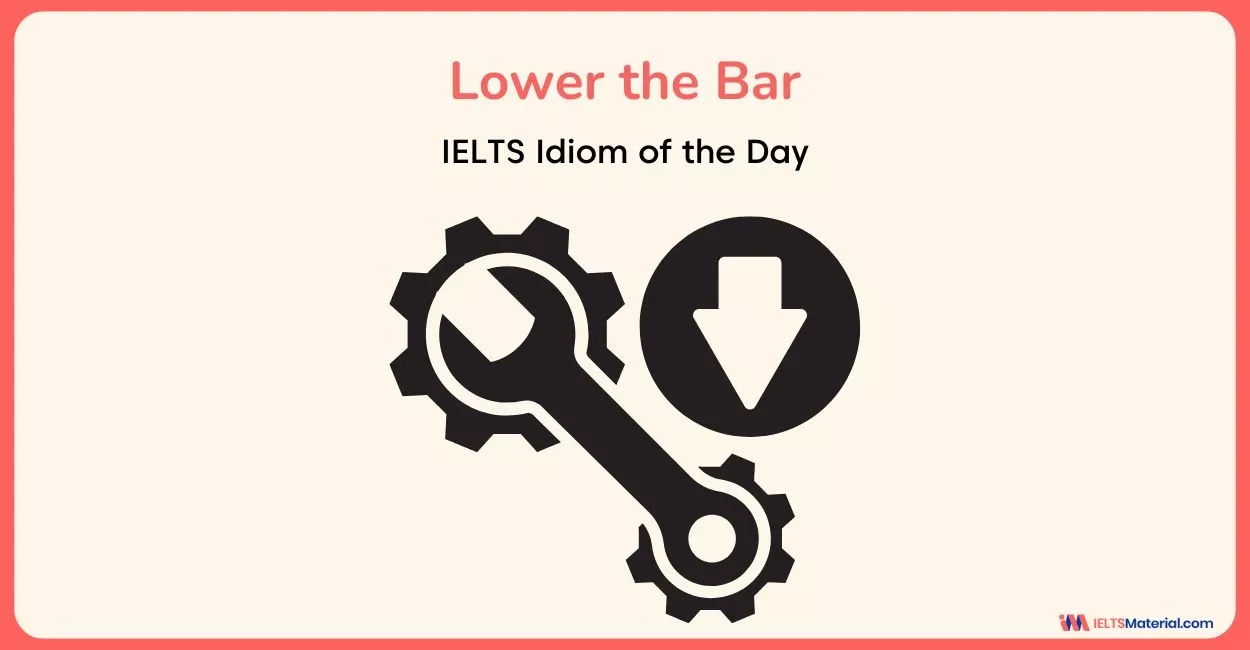
Haniya Yashfeen
Recent Articles
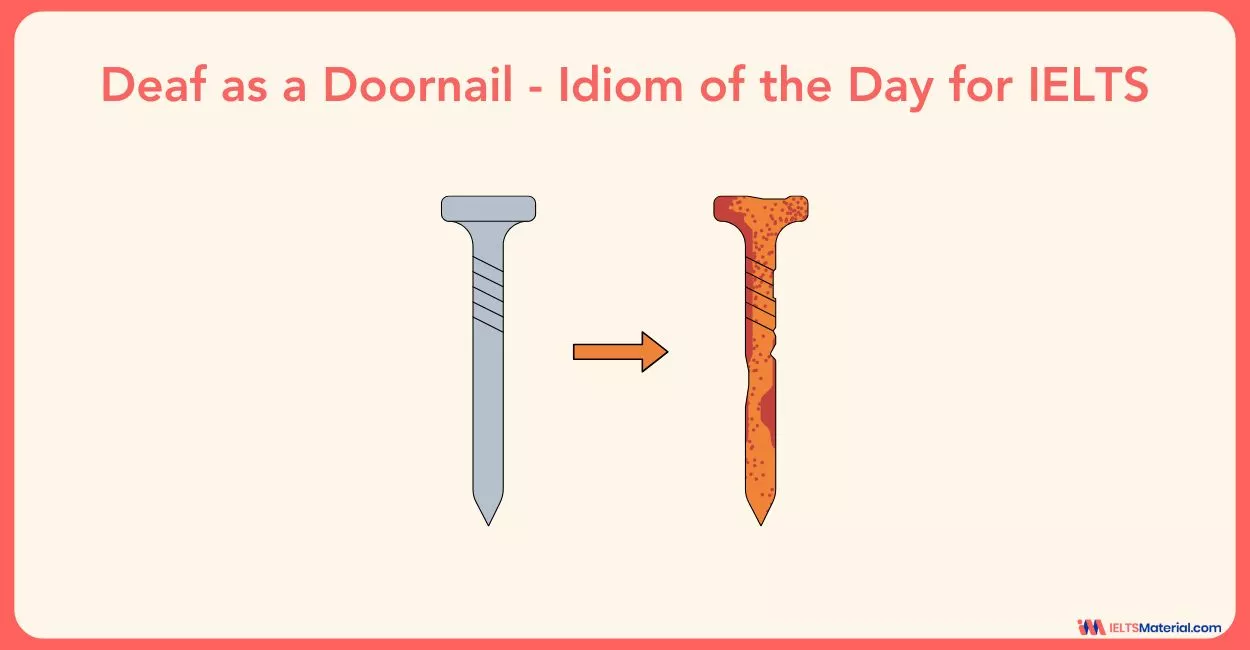
Kasturika Samanta

Prity Mallick

Nehasri Ravishenbagam
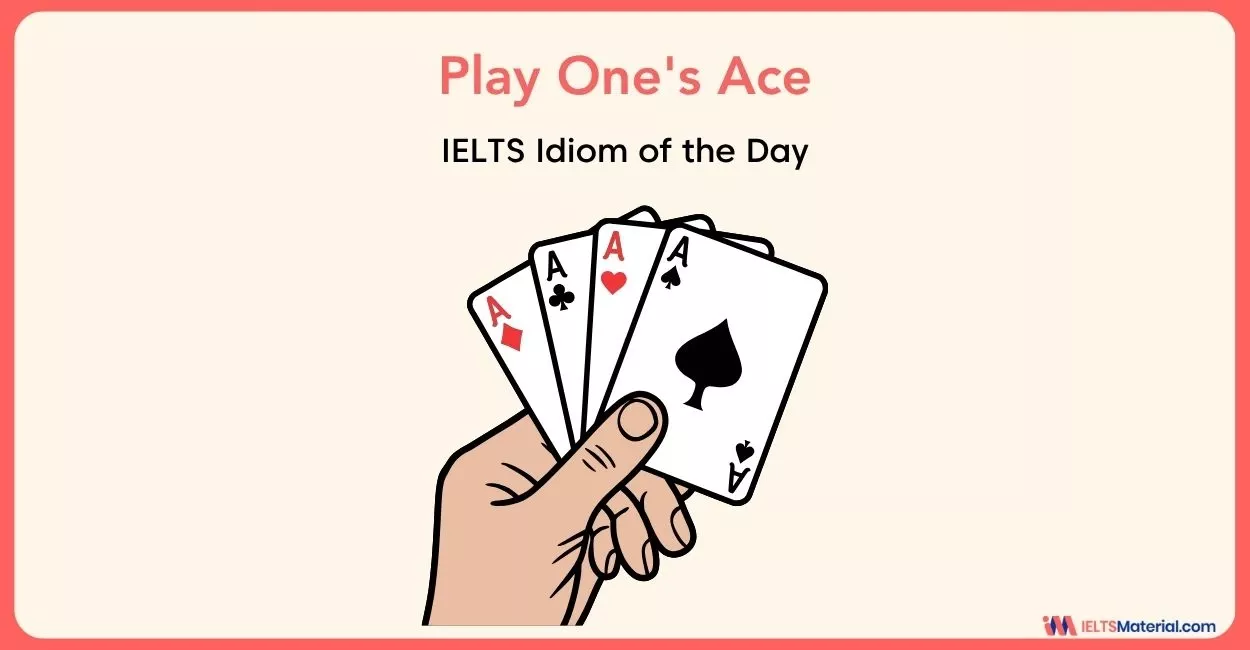


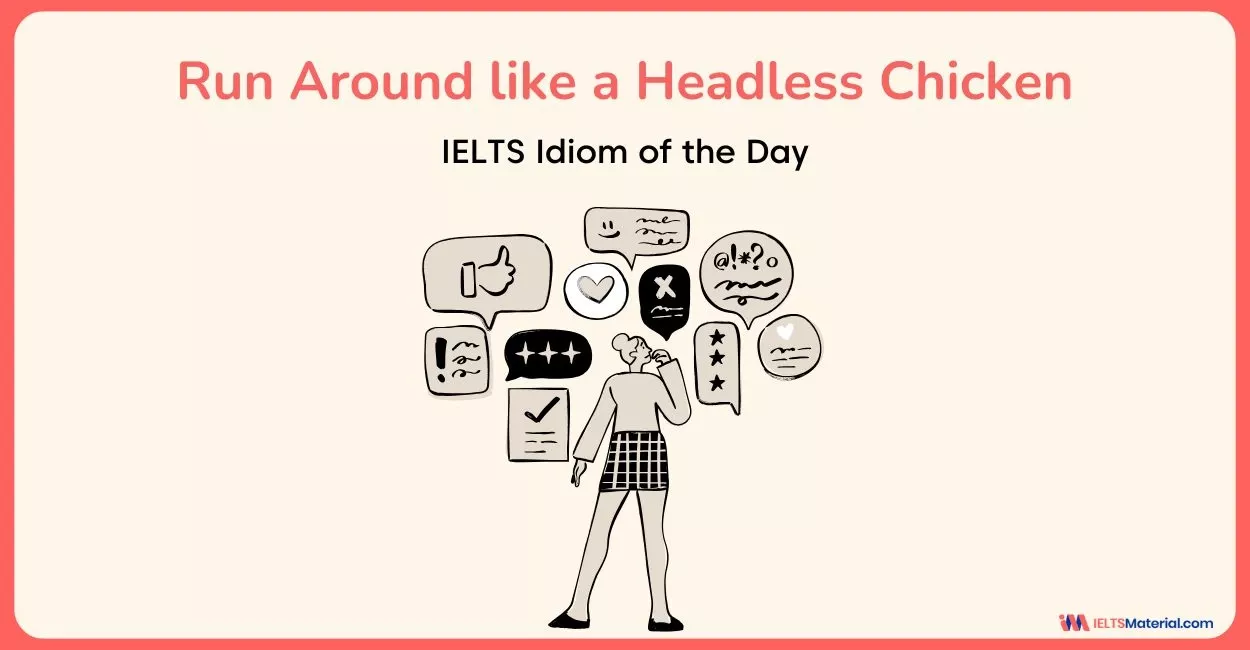
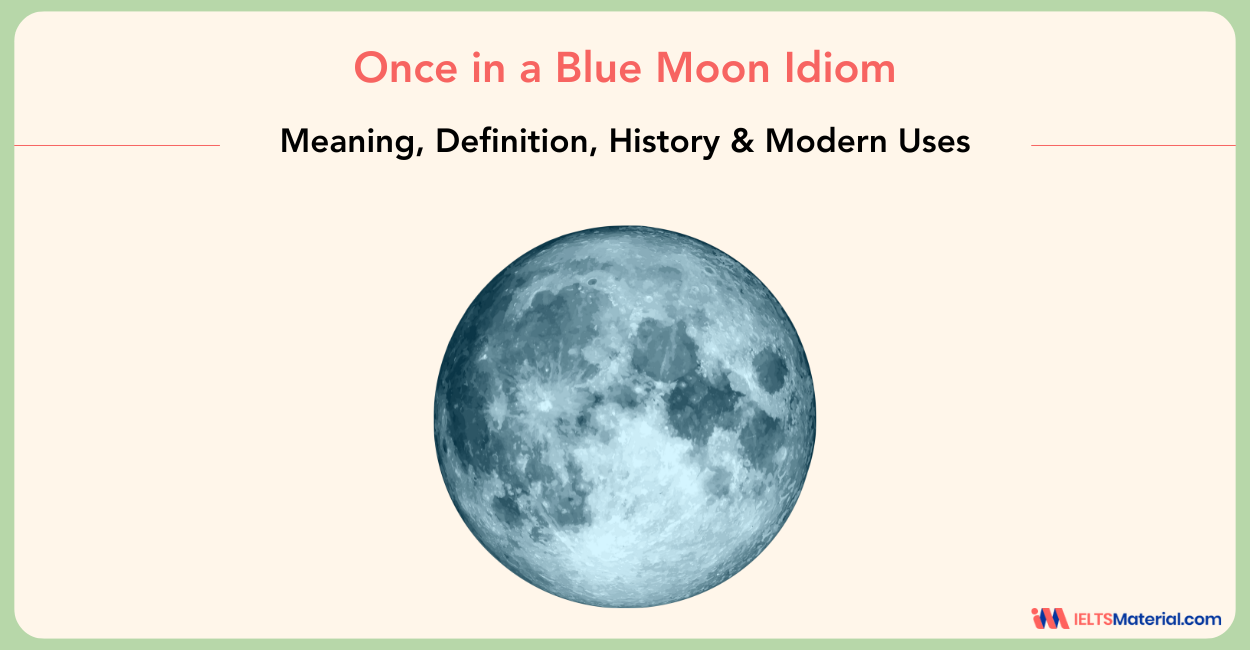


Post your Comments
2 Comments